
To make peace with yourself you may have to give up a lot. You may have to give up feeling sorry for yourself, straining to be someone you are not, hiding the parts of yourself you fear are unacceptable, and worrying about what others think.
You may have to forgive yourself and others for not being perfect and stop expecting superhuman feats from your loved ones and co-workers. You may have to learn to accept parts of yourself you have been resenting your entire life. Indeed, you may have to grow to appreciate yourself exactly as you are and not as you wish you could be.
Why bother, or who cares, you might say. Your peace of mind, your love and work relationships, and your moment-to-moment vitality may be at stake. Making peace with yourself is a personal challenge that is certain to bring you enormous and lasting satisfaction.
Books authored and coauthored by
Harold H. Bloomfield, M.D.
TM: DISCOVERING INNER ENERGY AND OVERCOMING STRESS
HAPPINESS
THE HOLISTIC WAY TO HEALTH AND HAPPINESS
HOW TO ENJOY THE LOVE OF YOUR LIFE
HOW TO SURVIVE THE LOSS OF A LOVE
INNER JOY
LIFEMATES: THE LOVE FITNESS PROGRAM FOR A LASTING RELATIONSHIP
LOVE SECRETS FOR A LASTING RELATIONSHIP
MAKING PEACE IN YOUR STEPFAMILY
MAKING PEACE WITH YOUR PARENTS
MAKING PEACE WITH YOURSELF
SURVIVING, HEALING AND GROWING
THE POWER OF 5
HOW TO BE SAFE IN AN UNSAFE WORLD
TRANSCENDING
HOW TO HEAL DEPRESSION
Books authored and coauthored by Leonard Felder, Ph.D.
MAKING PEACE WITH YOUR PARENTS
MAKING PEACE WITH YOURSELF
A FRESH START: HOW TO LET GO OF EMOTIONAL BAGGAGE AND ENJOY LIFE AGAIN
WHEN A LOVED ONE IS ILL
DOES SOMEONE AT WORK TREAT YOU BADLY
THE TEN CHALLENGES
Copyright 1985 by Bloomfield Productions, Inc.
All rights reserved under International and Pan-American Copyright Conventions. Published in the United States of America by Ballantine Books, a division of Random House, Inc., New York, and simultaneously in Canada by Random House of Canada Limited, Toronto. Previously published as THE ACHILLES SYNDROME by Random House, Inc. in 1985.
http://www.randomhouse.com
Library of Congress Catalog Card Number: 96-96696
eISBN: 978-0-307-77659-4
This edition published by arrangement with Random House, Inc.
v3.1
For my dearly beloved wife,
Sirah, daughter, Shazara, mother, Fridl, and sister, Nora.
And to you, the reader,
with my love and appreciation.
1. Making Peace With Yourself:
Discovering Your Achilles Heel
2. Making Peace With Your Past:
Im Afraid of Getting Hurt Again
3. Making Peace With Your Body & Appearance:
When I Look in the Mirror, Im Never
Quite Satisfied
4. Making Peace With Disapproval:
I Cant Stand Criticism
5. Making Peace With Time:
Im Always Feeling Tense and Rushed
6. Making Peace With Doubts & Expectations:
I Wish I Could Be Happier
To protect confidentiality, the names and identifying details in the case histories reported within the book have been changed. Any resemblance to persons living or dead is purely coincidental. Anyone with a history of psychiatric disorder or who feels emotionally unstable should not do the exercises in this book without first consulting a qualified mental health professional.
If you could change at least one thing about yourself to make your life better, what would it be? What personal barrier has been your nemesis in your love relationships or career? If you asked your spouse, ex-spouse, close friend, or co-workers what your weak spot is, what might you hear?
We each have at least one Achilles Heel, a weakness, insecurity, or vulnerability that regularly trips us up but that is not a pathological state or deep-seated psychological problem. Indeed, people who insist they do not have an Achilles Heel are very likely to be the ones whose Achilles Heel is that they think they have to be perfect! Being perfect is not what this book is about. Only those characteristics that persistently get in our way need to be dealt with.
Most people will never seek psychotherapy because of their Achilles Heel, yet we all suffer from some vulnerabilities that impair our intimate relationships, careers, and personal fulfillment. Discovering your Achilles Heel can be the beginning of changing your weaknesses into strengths.
The term Achilles Heel comes from the Greek myth of the great warrior Achilles. According to the legend, when Achilles mother dipped him in the river Styx to make him invulnerable, the water washed every part except the heel by which she held him. That one weak spot, his heel, was both the proof of his being human and his potential downfall. Rather than accepting his vulnerability and learning from it, Achilles defiantly sought to prove he was invincible. He repeatedly exposed himself to attack, winning several battles before his bitter rival Paris shot a fatal arrow into his heel.
An Achilles Heel refers to the part of ourselves that is both our greatest handicap and our greatest challenge. If we can accept and learn from our Achilles Heel, it can be a source of power, a stimulus to our growth, an essential part of our humanity. Yet, too often, we are like Achilles, resisting our vulnerabilities and forgetting our strengths.
 We each have at least one Achilles Heel, a weakness, insecurity, or vulnerability that regularly trips us up.
We each have at least one Achilles Heel, a weakness, insecurity, or vulnerability that regularly trips us up.
What You Resist Persists: The Achilles Syndrome
While we each have at least one weak spot or vulnerability, the question is what do we do with it? The Achilles Syndrome is the price we pay for resisting our Achilles Heel. If you try to ignore, suppress, or deny your Achilles Heel, it will have a tendency to reappear when you least expect it. What you resist persists is a powerful psychological principle. Even if you change your job or a major relationship, your Achilles Heel seems to follow you.
The what you resist persists phenomenon of the Achilles Syndrome can show up in various ways:
- Your Achilles Heel is a fear of being rejected in love and winding up alone, so you avoid getting too close to anyone or making an emotional commitment and, lo and behold, you wind up alone.
- Your Achilles Heel is your fear of losing your temper, so you avoid expressing your anger at minor irritations with your spouse, boss, or children until they pile up and you cant control your rage.
- Your Achilles Heel is your concern about your weight, so you promise yourself, Ill be ready (for a new dress, a new job, a better relationship) after I lose ten pounds. Yet several diets later, after repeatedly losing and regaining the same ten pounds, your insecurities about your weight remain.


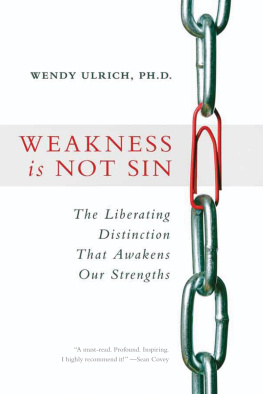
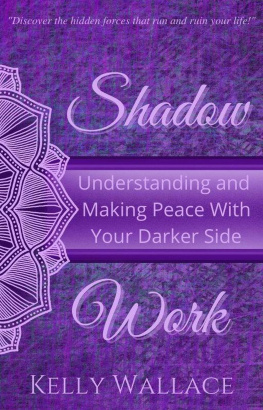



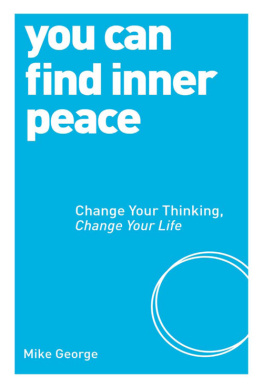
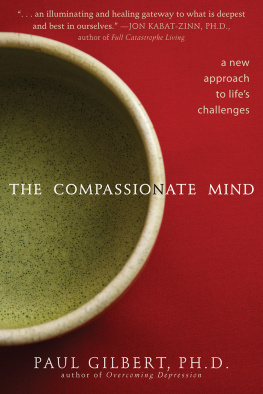
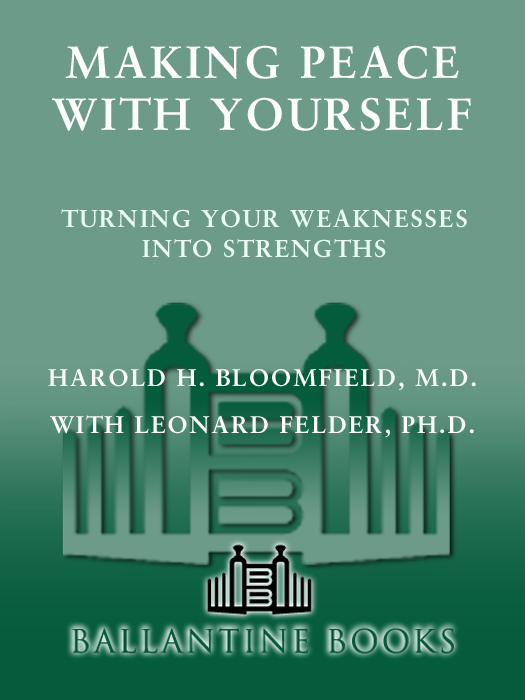

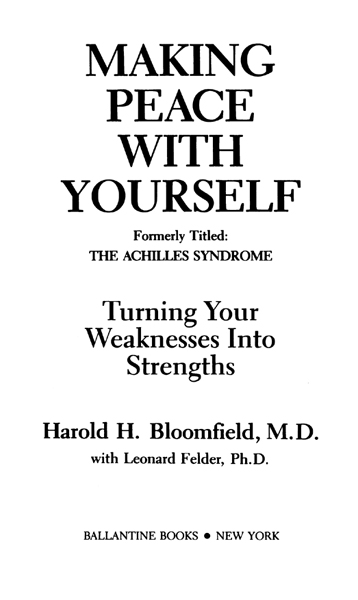


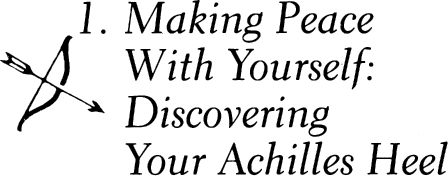
 We each have at least one Achilles Heel, a weakness, insecurity, or vulnerability that regularly trips us up.
We each have at least one Achilles Heel, a weakness, insecurity, or vulnerability that regularly trips us up.